We kindly inform you that, as long as the subject affiliation of our 300.000+ articles is in progress, you might get unsufficient or no results on your third level or second level search. In this case, please broaden your search criteria.
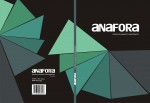
Besides urbanism, intermediality is another common characteristic where the continuity of the Croatian short story of the eighties and nineties can be found. Usually these two characteristics are interwoven; intermedial strategies often create a subtext of urbanism. The adaptations from the newspapers, movies, television, hyper- and cybertext confirm the thesis about the absolute pluralism and the incomplete convention of the prose text, and the lack of the final form as well. The method of quotations, especially the use of intermedial quotations, is probably the most characteristic and visible feature in the Croatian short story of the eighties and nineties. This feature gains in importance if we take into consideration that in the Hungarian short story there is a traditional emphasis on intertextuality. The revolutionary changes in the Gutenberg-galaxy refer to the redefinition of the role of the literary text, the reader and the author. With the phenomenon of computer-technology and the Internet, unlimited possibilities have opened up in the theory and realisation of the evolution/ development of the short story.
More...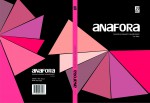
This paper analyzes a collection of poems Baščanska ploča – poema (The Baška Tablet – poem) written by the contemporary Croatian writer Mile Pešorda. The initial task of this study is to examine the level of sensitivity of the author's pen to the oldest period of Croatian literary history. Secondly, the underlying citation signals of Pešorda’s poems and their intertextual connection with monuments of medieval Croatian culture will be identified, and all this due to the precious stone of Croatian cultural heritage – the stone Tablet of Baška. The methods and procedures of stylistic analysis will be carried out and therefore will allow the identification of stylistic language features on all linguistic levels – from graphematics and graphetics to the syntax. Due to previous analyses that have acknowledged the Baška Tablet as a monument that can also be perceived through the symbolism of numbers, this paper comes with an important appendix, which represents a new perspective and an attempt of comparative numerological analysis that includes the Baška Tablet and Pešorda’s poems.
More...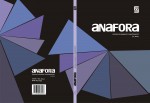
The paper presents pudarine – the annual custom of guarding ripening grapes which is celebrated in South Baranja in the second half of the summer, during the grape ripening season. At the heart of the celebration is the guarding of the grapes. The aim of the paper is to describe the custom, as well as to reveal the true reasons behind the celebration. Guarding the grapes was just an excuse for accompanying circumstances that contribute to the true value of the custom, namely meeting new people and preparing young women for marriage.
More...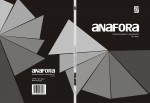
This paper deals with the construction of the postmodern identity of Jack Gladney, the main character in Don DeLillo’s White Noise (1985). Employing (post)modern, social psychology, and psychoanalytic theories of Zygmunt Bauman, Erich Fromm, Jean Baudrillard, and Gilles Lipovetsky, it analyzes the construction of Gladney’s character through his social roles as professor, husband, and consumer in the narrow sense of the word in order to deduce that his consumerist practices have spread to all aspects of his life. This reading reveals a new interpretation of Gladney’s fear of death; it shows that Gladney’s thanatophobia represents a consequence of his atheistic worldview. Namely, unable to find a haven in religion, he unsuccessfully seeks the meaning of life and death elsewhere, mainly in consumerism, which is identified as the source of his alienation from himself, people, and God. This paper suggests that numerous problems of postmodern life are caused by the lack of faith in God and proposes a conclusion that religion itself could be the answer to the difficulties faced by postmodern individuals with fragmented identities such as Jack Gladney.
More...
The primary objective of the study is to find and describe the narrative code of calendar verbal rituals, defined as an unalienable word of the living present. The term narrative code determines a system of rules that has a crucial impact on defining the principles of selecting and combining the elements of the story, i.e. heroes, space, time and plot. The sources for the analysis are verbal rituals excerpted from the ritual and customary practice Vodice (epiphany) in Macedonia. The analysis demonstrated a strong dependence of intratextual narration (i.e. the story creating a work of verbal folklore) on extratextual narration (social and religious). Using the following theories: 1. the memory of religious groups (Maurice Halbawchs), 2. collective and cultural memory (Assmann Jan, Astrid Erll) and 3. commemorative ceremonies (Paul Connerton), has shown how the foundational scenes of extratextual social (change in status) and religious (defined role in the festivities) narration are present in the ritual and customary practice of the Feast of Epiphany.
More...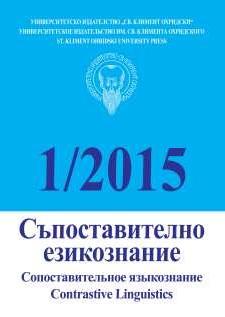
This article is devoted to the functioning of the category of verbal aspect in phraseological units (idioms) in Modern Greek and Bulgarian. In contrastive terms we describe and analyze specific cases of use of aspectual forms in phraseology. Depending on the aspectual nature of the verbal component it is possible to separate groups of idioms: with regular aspectual opposition or aspectual defectiveness of the verbal component (Imperfectiva tantum or Perfectiva tantum) or restrictions on use (predominant or preferred uses of the aspectual forms). We present the main factors governing the behavior of aspectual forms in the phraseology of both languages.
More...
This article is the first part of a series dedicated to the cognitive characteristics of noun phrases (NPs), namely to the taxonomy of indefinite NPs related to their referential status in view of the opposition specific ~ non-specific. This opposition carries particular importance for the logical-semantic representation of the utterance. In the study of foreign linguistics both terms are often used in an inconsistent and contradictory manner; consequently, this work represents an attempt to bring theoretical clarity regarding their semantics and use.
More...
The paper presents an exhaustive componential analysis of kinship terms in contemporary Bulgarian. The analysis has been accomplished by the application of a specialized software, which having been fed all kinship terms and their types, establishes all componential models, including „the simplest“ one (relying on a minimal number of distinctive features and meaning components for the definition of the terms). The results of the componential analysis are compared to those obtained for other Indo-European languages by applying the same software.
More...



![Humor: Views, Practices, Techniques [Хуморът: прочити, практики, техники]. Edited by Dafina Stefanova, Stanoy Stanoev. Sofia: Professor Marin Drinov Academic Publishing House, 2013](/api/image/getissuecoverimage?id=picture_2016_24533.jpg)
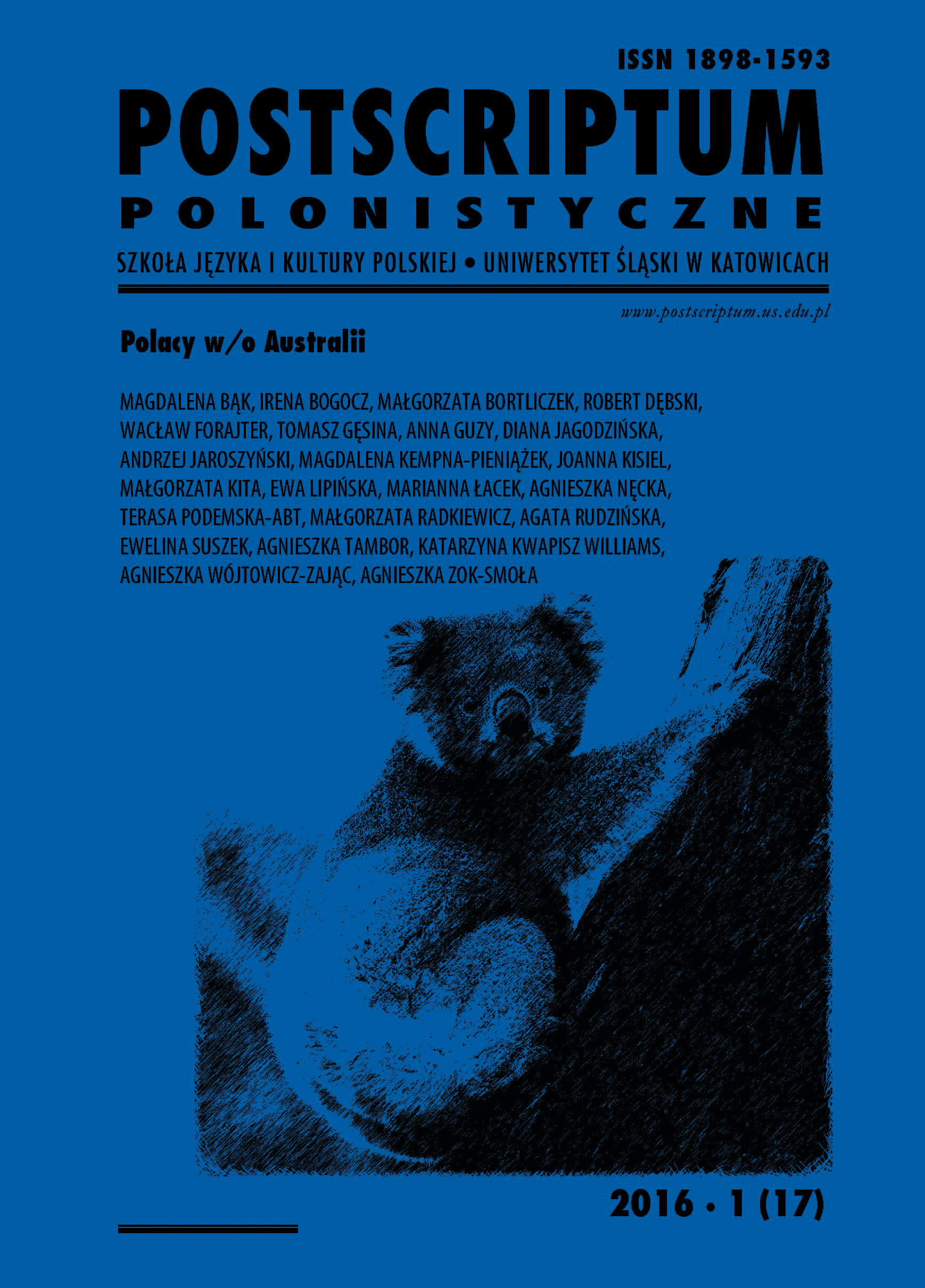
The article presents Polish research on the category of ‘space’, which influenced the shaping of the concept of geopoetics in Polish literary studies. Geopoetics is understood, according to Elżbieta Rybicka’s guidelines, as ‘concept-in-action’. The author of the article begins with theoretical considerations, then presents contemporary foreign theories and finally analyses theoretical works of Michał Głowiński, Henryk Markiewicz, and Janusz Sławiński. He also discusses the concept of ‘new regional studies’ in the context of the spatial turn. Using Stefania Skwarczyńska’s works, the author of the article claims ‘new regional studies’ to be one of the crucial elements of geopoetics.
More...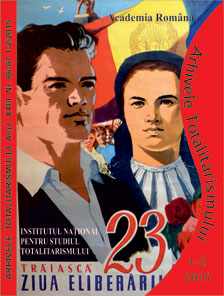
The paper presents some characteristics of Soviet civilization. It also discuss about the life of udarniki and nomenklatura, but also of common people, on new products designed by the Stalin and his ideological team in their race against the Occidental way of life.
More...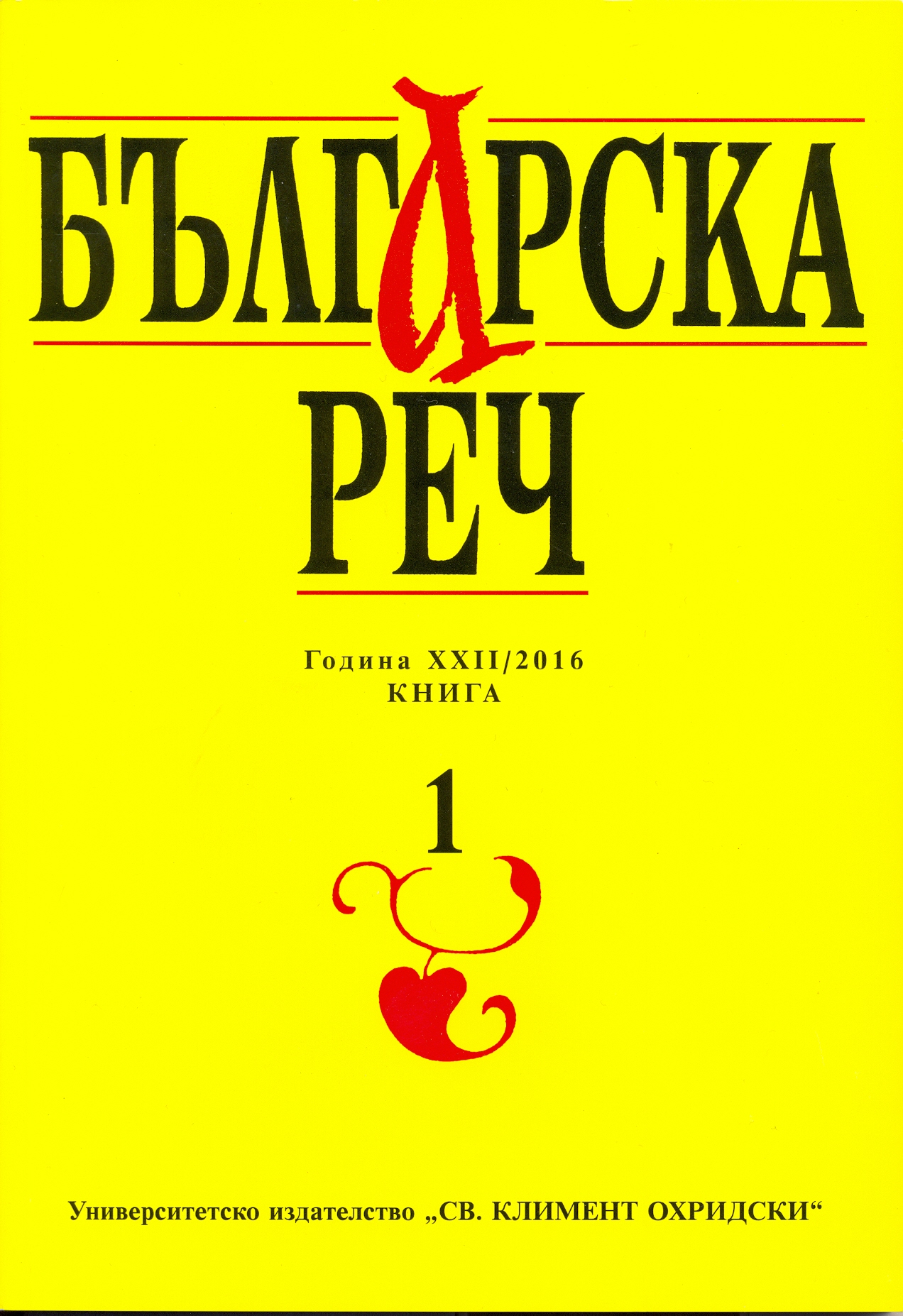
The subject of the research are the yet unregisrated in the Old Bulgarian language lexicographic referrences words or such words, just noted with an example in the same context of the book of Isaia with interpretations, based on manuscript F.I.461 from the National Library of Russia – St. Petersburg. The analysis of the hapax legomena and the rare words is performed in the composition of semanthic categories (groups) and lexis and wordforming paterns. The wordforming models of the terminative and rare words in IsF.I.461 are being analysed, in order to elucidate their connection with the lexis of the classic Old Bulgarian manuscripts and the indirect sources of Old Bulgarian language.
More...

The article aims at analyzing the fourfold use of words with root оусм- as a denomination for the tanned leather and the relevant craft, exercised by the hagiographic hero. They occur in two different parts original and translated of the manuscript № 1521 from 1564, located in the Church Historical and Archive Institute in Sofia. The manuscript itself contains the unique copy of the Nikola of Sofia’s Life by Matthew the Grammarian, which testifies the spread and the spiritual fundaments of the Sofia new martyrdom during the 16th century. The profile of the new martyrs in the name of Christ chares some common features, among which their professions, or crafts – an undoubted sign of realistic description and historical plausibility. The forms оусмошьвьчьство, оусмошьвьчьскъ, оусмотворьць, оусмы шити enrich the lexicographic interpretation of the motivating word оусма, оусъмиѥ, оусмъ, and allows the analysis to be carried out in the light of the biblical and the cultural tradition.
More...
The article is dedicated on the anthropomorphism of the mind in the Bulgarian proverbs. It is shown the cognitive metaphors of the mind as a man. The concept mind is compare with the concept heart. It is also presented the anthropomorphic features of the mind and of the heart. The article proves that the mind doesn’t possess emotionalmarks as the heart doesn’t possess mental. The study suggests the idea that the mind and the heart are two valuable components from the internal human life. They have their private life but the freedom of the mind is bigger than the freedom of the heart. On the other hand the heart is symbol of the human.
More...